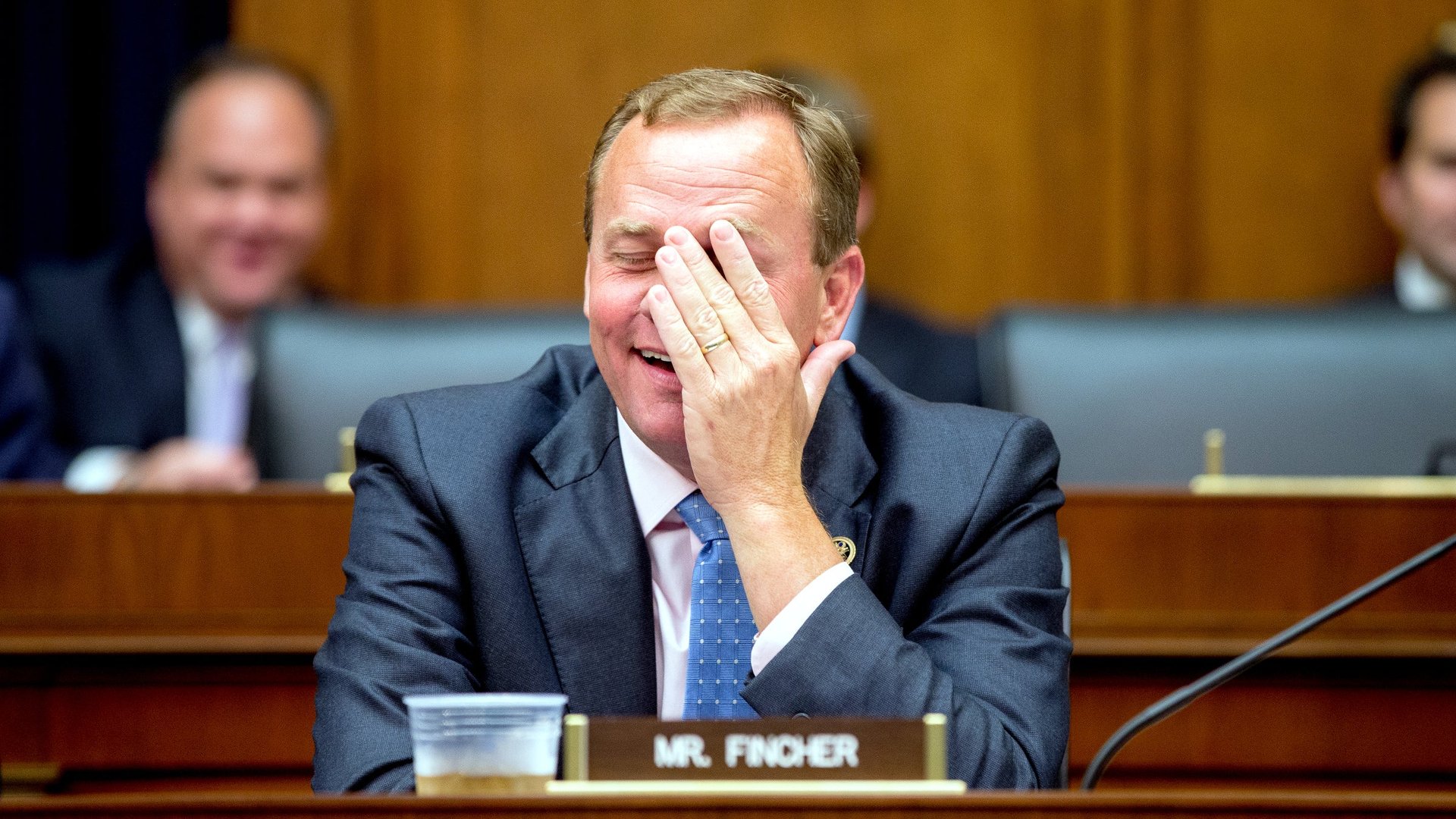Congress functioned just long enough today to bring a vote on the Export-Import Bank to the House floor
Maybe the best speaker of the House is no speaker at all.


Maybe the best speaker of the House is no speaker at all.
Today (Oct. 9), 42 Republicans and 176 Democrats in the US House of Representatives have succeeded in doing what current speaker John Boehner wouldn’t do and, in all likelihood, what is his successor must promise never to do: Bring a bill to renew the Export-Import Bank up for a vote on the House floor—one it will likely pass.
They are doing so by means of a “discharge petition” circulated by Tennessee Republican Stephen Fincher. It’s a procedural move in which any legislation can be brought up for a vote within seven days if it has the support of a simple majority of members. The petitions are rarely used because they are seen as undermining Congressional leadership, but, well, have you seen leadership lately?
The Export-Import Bank is a government-subsidized lending institution that offers cheap loans to foreign purchasers of US goods. By dollar value, the primary recipient of its largesse is airline manufacturer Boeing, but it also helps support exports from small businesses across the US and plays a major role in the satellite market.
Some free-market conservatives argue that the bank is an unnecessary intervention in the economy, and that these companies should compete for exports on their own. Supporters of the bank cite the existence of similar trade-finance banks in most other major economies and fear for US competitiveness if Ex-Im is terminated.
When it comes to the cost of the program, we can say that thus far it has returned more money to Treasury than it has received in its existence, and since 2007, has only funded itself with fees. Attempts to forecast the next decade’s cost to taxpayers depend on what accounting rules you use, but the estimates generally vary between a $12 billion profit and a $2 billion loss.
The cost is somewhat besides the point, since the Ex-Im Bank is a fairly small part of the US budget. What’s most important about the Ex-Im Bank these days is that it is symbolic of the many pieces of legislation, backed by the business lobby and moderates in both parties, that have been denied a real vote on the House floor.
As is the case with immigration reform, bills to authorize government spending, or efforts to lift the debt ceiling—items that would likely pass with a mixture of Republican and Democratic support—some 40 members of the House Republican caucus are in opposition, and have demanded that House leadership not pass anything that didn’t get their approval, or else.
This dynamic left Boehner paralyzed: He could not bargain with the opposition, but any bill passed with only Republican votes would die in the Senate or by presidential veto. It reduced him to clearing only must-pass legislation, and then with mostly Democratic votes—which resulted in conservatives repeatedly attempting to oust him.
Unwilling to abandon the conservatives and unable to win them over, he quit. And yesterday, his most obvious inheritor, majority leader Kevin McCarthy, declined to take up the baton for another cycle of explaining to his caucus that no, the rest of the government doesn’t agree with them.
Now the attention has turned to House Ways and Means committee chair Paul Ryan, also the party’s most recent vice presidential nominee. Ryan is a formidable politician and undoubtedly a conservative thinker, but his only major accomplishment in office is a bipartisan spending deal negotiated with a Democrat.
That’s what’s needed, though, in the House, where the pressing need to avoid a government shutdown or a debt default will require a compromise. Of course it remains to be seen if compromise, gridlock, or simply more confusion is on the horizon.
Meanwhile, 218 Democrats and Republicans agreed that Ex-Im at least deserves a vote. Somebody found a majority!